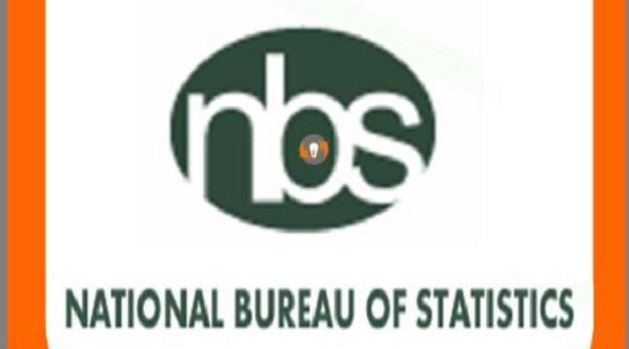E-Business
Cloud Computing Solutions Can Assist Significantly to Reduce Banking Costs in Africa – Report

More than 700 million Africans lack access to a bank or mobile money account and only 41% of Africans are financially included. This is due to the high cost of providing financial services in Africa which forces many financial services providers to remain focused on serving wealthier customers.

These are some of the many insights from the report Cloud Banking in Africa: The Regulatory Opportunity by Genesis Analytics and Orange Business Services on how the application of cloud computing in financial services can help financial services providers reach and serve the poor.
Part of the cost problem is that financial institutions in Africa are so much smaller than elsewhere – the biggest bank in Africa (SBSA with assets of $148 billion) ranks 296th globally; most banks in Africa have assets of less than $5 billion.
But African consumers are increasingly expecting these banks to provide the same range of digital services as banks in other countries.
This is why consumers have been turning to mobile banking in such numbers. The telecommunications companies have been much more successful at delivering affordable financial services than banks are, but also need to find new ways to reduce costs if they are to reach out to even poorer customers.
Cloud computing creates an opportunity for providers of financial services to rethink their technology spend and significantly reduce costs.
Cloud computing involves using internet technologies to provide virtual infrastructure that is scalable and delivered as a service. Fixed costs can be converted into a subscription-based approach and upfront capital investments are converted into operational costs.
Cloud computing allows banks to pay less for ICT infrastructure and services and achieve higher utilisation on ICT spend. Particularly for small banks in small markets where specialised ICT skills are in short supply, cloud computing can ease a critical operational constraint.
The most compelling reason to move to the cloud is undoubtedly cost savings, but there are other business reasons too.
The flexibility of cloud-based operational models allows financial institutions to experience shorter development cycles for new products, which supports a faster and more efficient response to the needs of customers.
Cloud computing provides the computer power necessary to deliver analytical insights in real time, which enables financial institutions to move towards a customer-centric model where the financial needs of customers are fully understood. Financial institutions can also gain a higher level of data security, resilience, fault tolerance and disaster recovery from cloud computing.
A few international and African banks have already realised the value of cloud banking. WeBank is China’s first digital bank that is based in a private cloud and uses innovative technologies, such as Artificial Intelligence and blockchain, to effect an extraordinarily high volume of transactions at a very low cost.
WeBank has been able to run at 95% lower cost than that of traditional banks’ IT operations and has passed this cost saving onto their customers in the form of low account fees. TymeBank is a new digital entrant to the South African banking sector and has made a 56% cost saving compared to other startups by using cloud services from AWS.
Before financial service providers can adopt cloud banking, regulators need to support and approve the use of cloud technology within the financial sector. Some international regulators are already allowing the use of cloud banking in the financial sector.
The European Union has been at the forefront of defining an enabling regulatory environment for cloud banking services, which has involved both the regulation on the use of data and privacy and protection of data.
Under the regulations, financial institutions have to ensure that consumer personal data is gathered legally and under strict conditions and that consumer data is fully protected. Other developing markets like Turkey and Argentina have adopted similar legal and regulatory environments, which has enabled the use of cloud banking in their financial sectors.
Africa’s financial sector regulators’ approaches are very much work in progress. The report urges African regulators to develop clear policy positions and regulations on data privacy, risk and security; data sovereignty; cybercrime; protection of intellectual property; vendor risk; and migration complexity and operational risk to enable financial institutions to reap the benefit of cloud banking.
Genesis Analytics is a global African firm that has worked in more than 74 countries across the world, 41 of which are on the continent, and Orange Business Services is a network-native digital services company and the global enterprise division of the Orange Group, connecting, protecting and innovating for enterprises around the world.
E-Business
Senate Passes Bill to Re-enact NIMC Act

The Senate has passed a bill, seeking to repeal and re-enact the National Identity Management Commission (NIMC) Act.

This followed adoption of report of Committee on National Identity Card and Population at plenary on Wednesday.
The report was presented by Senator Victor Umeh (LP-Anambra), chairman of the committee.
Senator Umeh in his presentation said the bill sought to provide for the establishment of a national identity database and the National Identity Management Commission.
According to him,the agency will be charged with responsibilities for maintenance of national database, the registration of individuals and the issuance of identity credentials.
He said the bill would lead to the creation of national identity database to source business biometric and empower NIMC to issue regulations and guidelines for implementation of the act and other related matters.
He said the bill sought to strengthen the legal framework of national and digital identity, hereby creating an optimal foundational identification ecosystem that fosters inclusion, universal coverage, and accessibility.
Senator Umeh said the act would establish a harmonious foundational identity system that is governed by a less restrictive, less cumbersome, non-discriminatory, non-punitive data protection, cost-effective, and compliance with global borders.
Senator Umeh said the bill, when passed into law, would address the challenges and limitations of national Identity management commission Act 2007, repeal it, and then close the gap of incomplete and inaccurate national identity database, provide efficient governance and service delivery.
He said the bill received overwhelming support from stakeholders at the public hearing due to the need to implement the long-awaited database system.
E-Business
World Bank Expresses Concern over Nigeria’s Poor Data, Statistics Quality

The World Bank has expressed concern over Nigeria’s poor statistical performance, noting that the country lags behind its aspirational peers such as Mexico, Colombia, South Africa and Brazil.

Mrs. Julie Osagie-Jacobs, director, Information and Public Relations, Ministry of Budget and Economic Planning, stated this in a statement after a courtesy visit to Senator Abubakar Bagudu, minister of Budget and Economic Planning, by a delegation from the World Bank led by Ndiame Diop, country director; and Mr Johan Mistiaen, practice mfor West and Central Africa, on Wednesday.
In his presentation titled “Next Level Statistics to Support Nigeria’s Reform and Growth Agenda,” Mistiaen stated that Nigeria’s statistical system was not on par with those of its developmental counterparts.
He advised that an annual investment of between $10m and $15m in the country’s statistical infrastructure would significantly improve performance and align Nigeria with its peers.
The statement read in part, “Earlier, Mr. Johan Mistiaen in his presentation on the next level statistics to support Nigeria’s reform and growth agenda, observed that the country’s statistical performance was not at par with its aspirational peers as Mexico, Colombia, South Africa and Brazil.
“He suggested that investing about $10-15m annually into the country’s statistical system can raise performance to that of its aspirational peers.”
Responding, Bagudu assured that the Federal Government would continue to guarantee the independence of the National Bureau of Statistics.
He commended the Bureau for consistently releasing credible and methodical data that have been relied upon by reputable international organisations.
The minister stressed that there would be no government interference in the operations of the NBS.
E-Business
FG Plans to Link Social Register to NIN for Humanitarian Crisis

Federal government has disclosed that efforts are ongoing to link the National Social Register (NSR) to the National Identity Numbers (NIN).

Prof. Nentawe Yilwatda, minister of Humanitarian Affairs and Poverty Reduction, explained that the linked data would assist the country to anticipate crises, mobilize resources faster, and ensure aid reaches those who need it the most.
He said harnessing data would save the country and relevant stakeholders the stress and bottlenecks of outdated processes.
He also identified bureaucratic crisis as the biggest crisis in the humanitarian space which stalls responses to humanitarian issues.
Speaking in Abuja on Tuesday at the National Humanitarian Roundtable programme, the minister said: “People are traumatized by climate change, security threats and economic shock across the country and in the midst of these, we have limited funding.
“The biggest crisis we have is not just the people being killed, the crisis we have is a bureaucratic crisis that does not respond to a humanitarian crisis. Every delay in decision making, every inefficiency in coordination, every shortfall in funding, costs the life of people.
“They say knowledge is power, but knowledge can be destructive too. It can only be power if we use it effectively. By leveraging data and technology, we can anticipate crises; we can mobilize resources faster and ensure aid reaches those who are in need the most and without the bottleneck of outdated processes.
“We are linking the social register to national identity numbers and geotagging all homes of those who are vulnerable across the country so that if there’s any crisis, we don’t need to begin to walk around communities and taking names and asking the States Emergency Management Agency and the National Emergency Management Agency (NEMA) for data.

 News3 days ago
News3 days agoPolice Arrest 4 Bank Staff over Alleged ₦270m Fraud, Money Laundering

 E-Financial3 days ago
E-Financial3 days agoUBA Grows Profit to ₦804Bn, Declares N3 Kobo Final Dividend

 E-Business3 days ago
E-Business3 days agoNIMC to Prosecute Nigerians Printing ‘NIN Cards’, Says Only Slip is Legal

 E-Business2 days ago
E-Business2 days agoFG Plans to Link Social Register to NIN for Humanitarian Crisis

 Telecom3 days ago
Telecom3 days agoOpen Access Fabrics Set to Drive Connectivity to Achieve a Digital Economy

 E-Business3 days ago
E-Business3 days agoUnleashing Nigeria’s Business Potential: The Cloud as Catalyst for Growth

 Telecom2 days ago
Telecom2 days agoKeystone Bank Seeks to Join Suit in Tussle over 9Mobile Shares Ownership

 Telecom3 days ago
Telecom3 days agoMTN Nigeria and Pan-Atlantic University Invite Media Practitioners for 4th Media Innovation Programme















